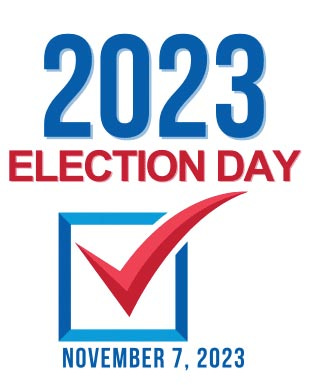Three-Point Shots, Vol. 1, No. 28: November 3, 2023
As we enter the penultimate month of the year, the Congress is more dysfunctional, the Lege is at an impasse, and counties are criminalizing travel for abortions. What could go wrong?
Welcome to another edition of Three-Point Shots, a part of my Life Its Ownself Substack page. If you enjoy reading it, please 1) hit the Like button, 2) subscribe to the Life Its Ownself, and 3) share it with others in the link below. Comments are welcome and encouraged.
Friday, November 3, 2023, 11:00 p.m.
It’s another Friday in Texas. Dallas is throwing a party for the World Series champion Texas Rangers. Donald Trump is holding a rally in Houston. In Austin, the legislative session is winding down and the Longhorns are gearing up to host Kansas State. It’s almost like Halloween weekend all over again!
1. Status of the Special Session
The special session that began October 9 will end next Tuesday, the 7th. As you recall, there were four issues on the charge; Governor Abbott added another this week. Here’s their status as we enter the final weekend:
Vouchers – Barring some unforeseen realignment of the planets, nothing will pass (as I predicted). The Senate version has not gotten a hearing in the House. The House version, which couples enhanced school funding and a teacher pay raise with a voucher pilot program, was not eligible for consideration until Abbott expanded the call Tuesday. But House committee chair Brad Buckley said Wednesday that the House would not have time to consider education legislation in the few remaining days of the session. As a teaser, though, he filed a new bill today that, for the first time, imposes accountability measures on voucher recipients — something voucher supporters have fought tooth and nail in the past. The bill will not get a hearing, but will be a starting point for future House discussion of the issue.
Border security – the Senate has passed two bills: SB 4, increasing penalties for migrant trafficking, and SB 6, appropriating another $1.6 billion for Operation Lone Star. SB 4 has passed and awaits the Governor’s signature. SB 6 is over in the House, and a House version of the bill, HB 6, is over in the Senate. The main difference between the two bills is that the Senate version sets aside $40 million of the total to increase law enforcement (presumably, DPS) in Colony Ridge. No word on how, or if, that will be resolved.
Ban on private employer COVID mandates – You can tell when a bill is judged to be tasty red meat for the base by the number of co-sponsors it has. For instance, 14 of the 19 Republicans in the Senate co-sponsored this little morsel of public policy. It passed both chambers on party-line votes and awaits the Governor’s signature.
Colony Ridge – As you recall, the Colony Ridge “problem” is IMHO largely a creation of the right-wing fever swamps. Hearings by House and Senate committees failed to find a “there” there. The Senate has diverted $40 million of the border security appropriation to enhanced law enforcement presence in Colony Ridge. But the House and Senate have not yet agreed on that strategy.
What next? The Governor has vowed to keep the Lege in session until he gets his vouchers. His people were noncommittal about if he will call another special session, and when.
2. Four Texas counties now criminalize helping someone travel to get an abortion.
From the New York Times:
In recent months, abortion opponents in Texas have succeeded in passing a growing number of local ordinances to prevent people from helping women travel to have abortions in nearby states that still allow the procedure. …
On [October 23], Lubbock County, a conservative hub of more than 300,000 residents near the border with New Mexico, became the [fourth and] largest county yet to enact such a ban. (Ed.: The others are Cochran, Mitchell and Goliad.)
… they rely on the same enforcement mechanism as the abortion ban: lawsuits by private citizens. They specifically prohibit the police, sheriffs or other county officers or employees from enforcing the ban — a means of avoiding an immediate court challenge and possible injunction.
Practically speaking, someone would have to learn of a person assisting a pregnant woman with travel out of state for a procedure in order to bring a suit. The ordinances will most likely function like the six-week abortion ban, which attracted few cases but had a chilling effect.
Some legal scholars said the ordinances could run afoul of constitutional protections.
“Even Justice Kavanaugh, in his concurring opinion in the Dobbs decision overruling Roe v. Wade, noted that a state would be violating the constitutional right to interstate travel if it sought to prohibit women from traveling out of state to seek a lawful abortion,” said Jeffrey B. Abramson, emeritus professor of government and law at the University of Texas at Austin.
My take: There is a word for this, and it is diabolical. It is likely unconstitutional, but the ordinance’s structure makes it difficult to litigate. Like the Texas “bounty hunter” law itself, it has not created many lawsuits but nonetheless will have a chilling effect.
It goes without saying that criminalizing cross-county travel for an abortion is NOT A COUNTY’S BUSINESS. The Lubbock ordinance includes extraordinary contortions to justify itself legally. But the anti-abortion forces are happy to go county by county and seek similar rules.
It would be interesting to take the “private bounty hunter” approach to solve some of the problems on which more progressive Texans have been unable to interest the Legislature.
3. The Overton Window: A Primer
The Overton Window is a political science concept that helps to explain how public policy decisions are made. The basic concept is this: for any public policy issue, there is a range of possible outcomes that are acceptable. The range may be very broad or very narrow. Within that range, there is a “sweet spot” that provides the maximum support for a given solution.
The Overton Window is often visualized thusly:
Obviously, the Overton Window on any issue can shift over time. For example, same-sex marriage was verboten as late as the early 2000s, but Barack Obama’s about-face in 2012 (encouraged by his then-Vice President Joe Biden) shifted (or reflected a shift in) the Overton Window on that issue so much that, by the time the Supreme Court recognized the right in the Obergefell decision, most of the country was ready to accept it and the threatened backlash never materialized.
To take another example, Medicaid expansion (i.e., broadening the services and eligible populations of a state’s Medicaid program) has already occurred in 40 states. Polls show that 69% of Lone Star State residents support expansion, but the Legislature has not come close to doing so; not even had a serious conversation.
Why is that? It is because the Overton Window for Medicaid expansion is much narrower and further to the right in the Legislature than it is in the general population. This is an important point: for any given issue, there are various Overton Windows for various stakeholders.
The Overton Window is helpful for observing and analyzing the evolution of public policy. What was unthinkable a generation ago is now the public policy of the state. To take another example, how recently would spending billions of taxpayer dollars on border security have been unthinkable?
This weekend:
… Spring forward, fall back – Daylight Savings Time ends on Sunday morning.
Speaking of the time change, The Atlantic’s Katherine Wu loves this Sunday over all other days, but Tom Nichols argues for more leisurely mornings, whatever the clock says. Texas Monthly’s Dave Courtney has an interesting take: time changes serve as proxies for the more obvious seasonal changes of other states: “In lieu of admiring a sudden burst of autumnal colors on the changing leaves of fall foliage, we ‘fall back.’”
… Tuesday is ELECTION DAY for a series of constitutional amendments. In some communities, there are also local races and initiatives on the ballot. Check your local sources. VOTE!
Have a great weekend!








The Texas Ledge's current policies are akin to a stew bowl of Mulligan shit. They think if they put enough sugar on it you might be able to eat it. But no. It's still what it is and what only the coprophagic Republicans can consume. Unfortunately they want us to eat it with them. (I apologize for the vulgarity but if you're reading about the Texas Republicans; heck, pretty much all Republicans at this point, then I believe the vulgarity applies.)
Thanks for the audio option.